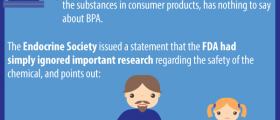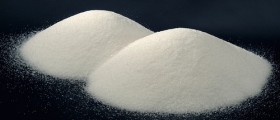
Canned soups were invented back in 1897. The genius behind this invention is Dr. John T. Dorrance, a chemist with the Campbell Soup Company. This very famous brand served as a source of inspiration for the artist Andy Warhol, icon of the pop art movement. Even today, Campbell’s soups are very popular in the United States and it is estimated that Americans consume about 2.5 billion bowls of their favorite can soups each year: Campbell's Tomato, Cream of Mushroom, and Chicken Noodle Soup.
About canned soups
Canned soups are either condensed or ready-to-eat. They may require adding a bit of water or milk before eating, or used as a base for homemade soups. The soup can be doubled in volume by adding water or milk. One can enhance their taste and nutritional value by adding vegetables, eggs, cream, pasta, and many other ingredients. However, the question remains: are canned soups smart and healthy food choices?
Salt content
Salt is the least hazardous ingredient in a can of soup, but still very dangerous one. It is estimated that an average cup of soap contains more than 1,000 milligrams of salt. This is nearly a half of the recommended daily dose, which is about 2,400 milligrams at maximum. Moreover, people usually eat more than just a cup of soup per meal, forgetting about the hidden contents of salt from all kinds of foods they consume. Salt is hazardous for blood pressure, it promotes fluid retention; increases risk of osteoporosis, asthma, kidney diseases and even stomach cancer.
Artificial preservatives
Artificial preservatives are especially dangerous. Cans of soup are loaded with these ingredients. Most commonly used is Monosodium glutamate, also known as MSG or E621. This flavor enhancer adds to the “meaty” flavor of the dish, but also acts as a strong neurotoxin that damages the cells of the nervous system. According to FDA, this preservative is generally considered safe, but it is known to cause headaches, nausea, and tightness in the chest, rapid heartbeats and several other symptoms gathered under the name “Chinese restaurant syndrome”.
Preservation
A study recently issued by Consumer Reports methods found that almost all canned foods contain Bisphenol A (BPA), a very dangerous chemical used to line food and beverage bottles and cans to withstand high temperatures. This compound leaches into foods and may cause severe health troubles with ingested. Exposure to Bisphenol A (BPA) is linked to certain types of cancer, diabetes, heart disease, reproductive problems, etc. Bisphenol is also hazardous for developing fetuses.

















Your thoughts on this
Loading...